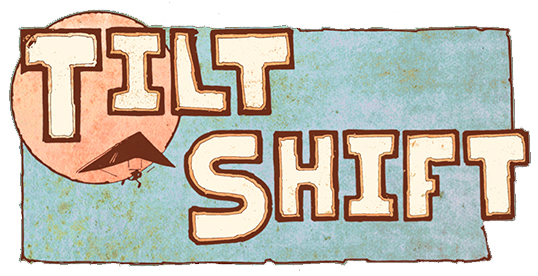My sister (21, Mezzo Soprano, got all the beauty genes) leaves for Finland tomorrow. She’s one of two U.S. competitors in the Mirjam Helin International Singing Competition, and also the competition’s youngest. She’s just been told that her host has a swimming pool, but not to wear a bathing suit (they swim in the nude), so she’s already feeling culture shocked. She’s scared about flying overseas. I don’t blame her, given recent headlines. I’m of course referring to MH17, but also another event that shook me:
Last Wednesday, Haris Suleman (17) and his father Babar crashed into the Pacific ocean en route to Hawaii. They had been flying around the world from Indianapolis in a world record attempt, and were supposed to make their final touchdown on Sunday. The flight was to fundraise for new schools in Babar’s native Pakistan. Haris’ last tweet: “Pago Pago is without a doubt top 5 places I’ve been this summer :)”
This was too close to home. It hit that area of my throat that makes me uncomfortable. “This could be you,” it whispered. The point in bringing this up isn’t to make anyone nervous or our parents cringe. It’s to talk about death.
My patron saint of cross country flying, Cal Rodgers, met his untimely end just after his own flight was over, and it’s a surprise that he didn’t die before he made the flight. He crashed 14 times and was hospitalized for a month before he could complete the trip. The very reason that Cal’s name is so enigmatic is because he died, the ensuing boom in aviation all but writing him out of the books. I think that he was keenly aware of the possibility of dying. How could he not? Multiple deaths had occurred at the Chicago International Aviation Meet just a few months before he began his trip. But he pushed on anyway, fighting pressing crowds, delays, injuries, and his own mother, who forbade him from completing the trip (apparently worrying mothers could be major delays in 1911).
I recently had a conversation with a customer (I work at a winery now) about the differences between the west and the east coast, he being a refreshingly cynical New Yorker. He paused for a moment, took a sip of cabernet sauvignon, and quipped: (I’m paraphrasing here) “the biggest difference between the east and west coast is how each views death. That’s what defines the life of everyone: how they view death. No one lives forever.” Ironically, the guy was a life insurance salesman.
I told my sister that part of the reason I stayed tied to New York was that anything outside New York, whether I realized it in these terms or not, meant uncertainty. I stuck with what I knew, afraid of having to readapt to something different. I think that in some ways I wanted to take this adventure to face my own mortality. As a result, I’ve come face to face with the present, i.e. life.
I could toss out statistics and stats about light sport trike crashes, but everything about risk ultimately comes down to weighing it. That is to say: is it worth it? Will you regret it if you die because of that risk? For my sister, leaving to go compete in a major international singing competition far outweighs the astronomical possibility of crashing in the plane she’s travelling in. For Stephen and I?
We’ve talked about this. We may pantomime having an engine out over Los Angeles for comedic effect, but both of us understand what we’re undertaking. We’re doing something that nature did not intend human beings to do. We’re taking every precaution, of course: proper instruction, a ground crew as backup, and a ballistic recovery parachute installed in the trike. The question remains, as I said before: does the act outweigh the risk?
Being on this adventure is the first time that I’ve been okay with the idea of dying, and I don’t think that’s as morbid as it sounds. If I had died in New York, for any reason, I would have (for the sake of discussion) regretted it. If I die having an epic adventure, pursuing something that I’m passionate about, and aiming to create a portrayal of that experience, I’m very okay with it. I wouldn’t take the (still relatively small) risk I’m taking otherwise.
I’m really not being flippant. We generally don’t want to talk about death because we don’t want to think about it. Even Stephen (and of course I don’t fault him for this), brushed this conversation aside last time we had it. But it’s important to think about. Time is limited. Time does not exist except the present time and if you aren’t okay with the present, you shouldn’t be doing whatever it is you’re doing because then… why? Why any of it?
I tried ignoring death for a long time. In my initial flight lessons I would suppress the idea that there was a finite amount of space between my body and the grape vines below. That didn’t eliminate the thought, it just struck harder whenever it came into the foreground. It doesn’t surface anymore (at least in flight) for the simple reason that I’ve accepted it and moved on to the reason for the risk: the why and the now.
Haris Suleman and his father knew what they were getting themselves into. Their death is a tragedy, but it’s not a reason for anyone else to stay on the ground. And it’s certainly not a reason to stay cloistered in a practice room when you could take a miniscule risk for a major international singing competition. I’m more excited for my little sister (sorry Adele, can’t stop thinking about you as “little”) than I ever have been. I can’t wait to hear what happens after she lands.



